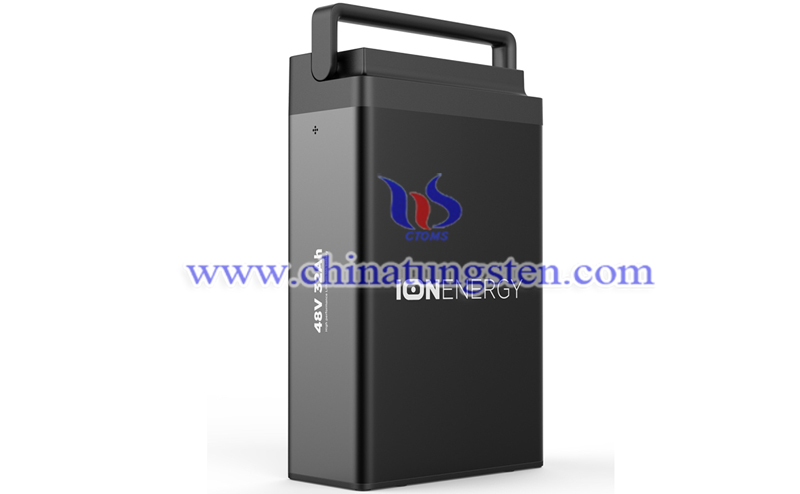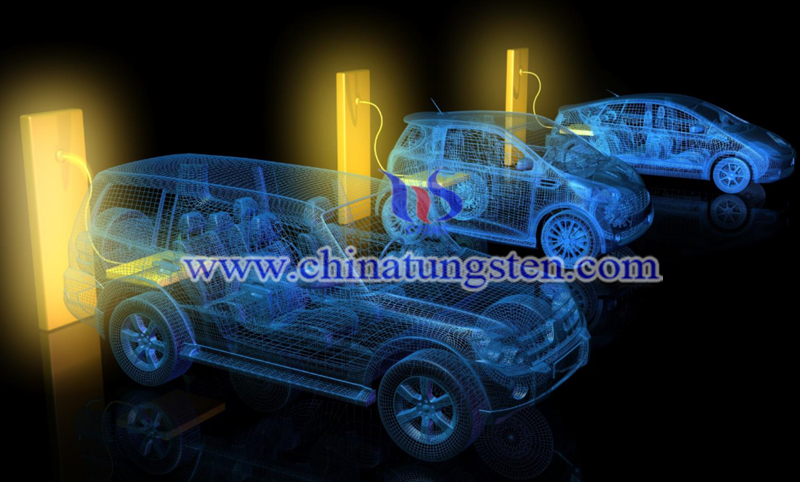Indian ION Energy’s BMS Improves Lithium-Ion Battery Performance
- Details
- Category: Tungsten's News
- Published on Tuesday, 17 March 2020 22:03
To extends lithium-ion battery life and improves its performance, an Indian startup, Mumbai-based ION Energy Inc, combines unique electronics, Internet of Things (IoT) and cloud analytics and software to creates a battery management system (BMS) solution.
Rising levels of pollution have opened up discussions regarding the transition to alternative energy sources and electric vehicles (EVs), but one of the main problems facing the field is the lack of technology and resources needed to produce lithium-ion batteries. The lack of local batteries has led many automakers to import large numbers of batteries from other countries, thereby increasing the overall cost of the car.
However, Indian Mumbai-based ION Energy is looking to solve this problem by providing a unique electronic platform-as-a-service (PaaS) model. This model uses software analytics and artificial intelligence (AI) to improve the performance of EV batteries. The company allows customers to use its technology to buy or build their own BMS.

ION Energy was founded by Akhil Aryan in 2016. The company is an advanced battery management and intelligence platform that are focused on building technologies that improve the life and performance of lithium-ion batteries that power EVs and an energy storage system.
For the uninitiated, BMS is the brain of the battery. It is responsible for measuring lithium-ion battery voltage, ensuring a balanced battery cycle, identifying states, and controlling crucial safety systems. It can manage the battery by keeping its safety, thereby extending battery life and improving Its performance. Thus, any kind of lithium-ion battery requires a BMS to ensure safe operation.
Currently, BMS systems on the market provide electronic hardware support for the battery and act as a motherboard. And the company built a motherboard and connected it to the cloud. According to Aryan, the combination of advanced electronics with cutting-edge IoT and cloud infrastructure can help extend battery life and improve its performance.
The startup is currently supported by a number of investors, including Sushil Jiwarajka, chairman of OMC Power and Nippo Batteries, Aakrit Vaish, founder of Haptik, and Swapan Rajdev. The company counts some of the popular brands such as Ola, Okinawa Scooters, Tata Motors, and Airbus as its clients. The company currently present across 12 countries including France, Germany, the United Kingdom, Ireland, Australia, and Africa.

According to Aryan, one of the main challenges currently facing is that it is difficult for such technology companies to raise venture capital. Aryan said: " We don't have the investment environment that allows us to raise significant capital for this but it has in some ways forced us to be capital efficient." Besides, for ION Energy, recruiting the right talent is also one of the challenges because the industry is just getting started, and few people in India really know about batteries and BMS.
Currently, 25,000 vehicles on the road have deployed BMS solution. Apart from this, the company also launched the Edison analytics platform for cloud-managed battery lifecycle management in September 2019.
Aryan said that customers already use the Edison analytics platform and generate revenue for the company. According to reports, the Edison analysis platform has been designed to use usage data and identify patterns to predict battery life degradation, provide warning signs, and send wireless updates to extend battery life by 40%.
By 2020, Aryan expects that at least 100,000 EVs using its BMS nationwide and globally will begin delivering orders. In addition, ION Energy plans to open an office in North America to expand its business scope outside Indian regions. It also believes that the Southeast Asian market is attractive and plans to build a small base in the region. In terms of products, the company plans to launch more lithium-ion battery products this year to enter the high-voltage and passenger car fields.
- Tungsten Manufacturer & Supplier, Chinatungsten Online: www.chinatungsten.com
- Tungsten News & Prices of China Tungsten Industry Association: www.ctia.com.cn
- Molybdenum News & Price: news.molybdenum.com.cn
- Tel.: 86 592 5129696; Fax: 86 592 5129797; Email: sales@chinatungsten.com



 sales@chinatungsten.com
sales@chinatungsten.com